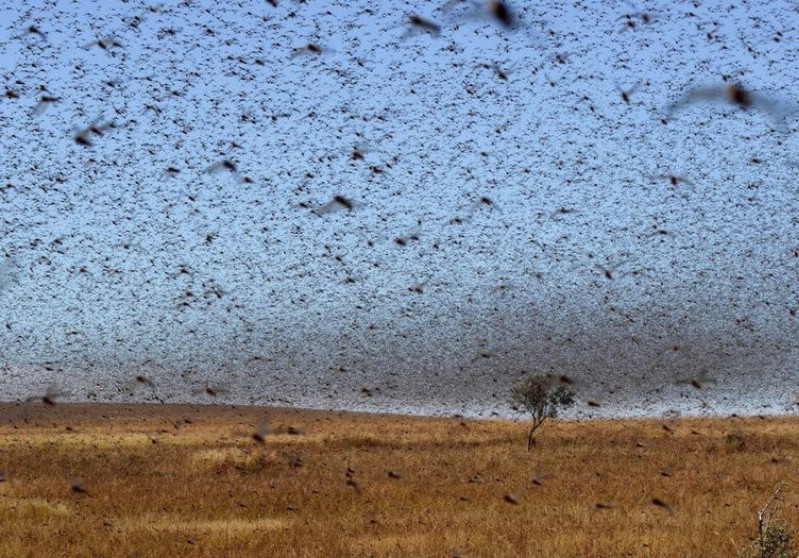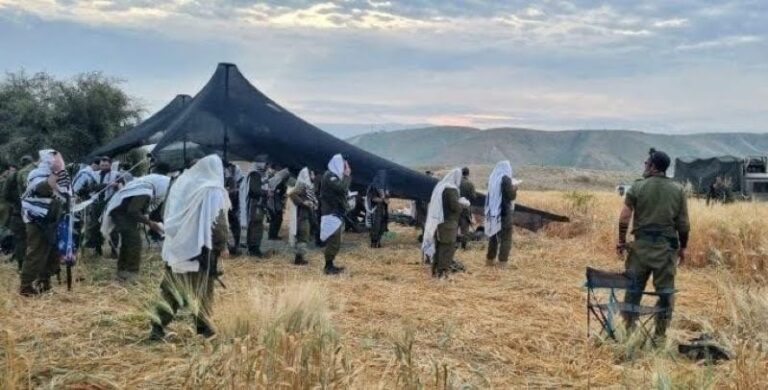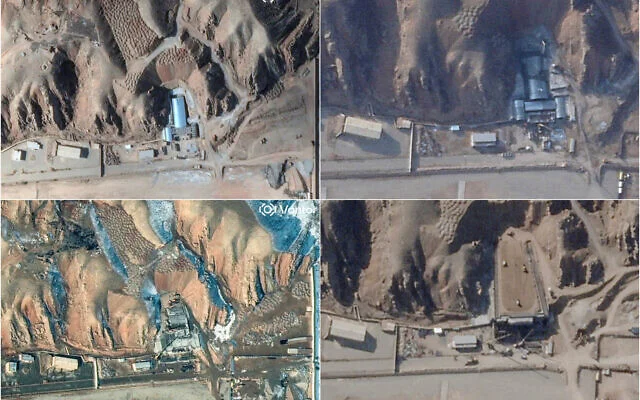Numerous health organizations are battling a plague of locusts that hit the peninsula of Sudan and Eritrea on the Red Sea in December. In spite of their efforts, the plague has now spread to both sides of the sea infecting both Egypt and Saudi Arabia.
The number of locusts are increasing in the affected areas. Some 21,000 acres of land have been affected in the four countries. The organizations have worked on treating almost 7,500 affected acres in the last three weeks alone, and are not managing to curb the locusts.
Over the month of February, considerable rainfall has wetted the plant growth in the region and as the plants begin to dry, heading towards Pesach, there is a threat of the locusts moving further north into the Sudanese Nile basin on the west side of the sea and further inland in Saudi Arabia on the east side. Iran has begun to spray their crops against the advent of the locusts encroaching on their territory, as one locust was spotted on their shores towards the beginning of January.
The increase in locust population was triggered by heavy rainfall in October, sparking two generations of breeding. At issue is that the insects could affect national food security if interventions are not successful.
The (United Nation’s Food and Agriculture Organization) FAO issued a statement urging the affected countries to take all measures necessary to prevent the spread of the locusts in order to preserve the crops of the region. “All the affected countries must raise the level of awareness and ensure that the proper steps are taken in order to minimize the spread of the current wave of locusts and prevent the possibility of their moving to another region.”
While the locusts were normally present in low numbers in the desert and did not cause massive problems, large rainfall could cause them to rapidly multiply. Eventually they would form “hopper bands or swarms of adults, composed of billions of individual locusts.”
(YWN Israel Desk – Jerusalem)











2 Responses
couldn’t happen to more deserving people..
Kain Yirbu!!